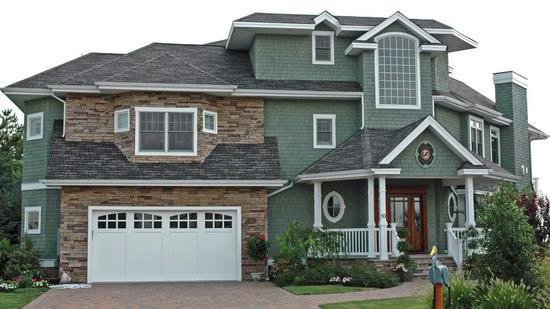If you have gone
through a foreclosure in the past, you may think that getting a mortgage is out of your reach.
However, that is not necessarily the case. There are some mortgage options that can help you
overcome the negative impact of a foreclosure and become a homeowner again. One of these options
is an FHA loan, which is a government-backed mortgage that has more flexible and forgiving
requirements than conventional loans. In this article, we will explain what an FHA loan is, how
it can help you get a mortgage with a foreclosure, and what you need to do to qualify for
one.
## What is an FHA loan?
An FHA loan is a mortgage that is insured by the
Federal Housing Administration (FHA), a part of the Department of Housing and Urban Development
(HUD). The FHA does not lend money directly to borrowers, but rather guarantees the repayment of
the loan in case the borrower defaults. This reduces the risk for lenders, who can then offer
more favorable terms and conditions to borrowers, such as lower down payments, lower interest
rates, and easier credit qualifications.
An FHA loan can be used to purchase or refinance
a single-family home, a duplex, a triplex, or a fourplex, as long as the borrower intends to
occupy one of the units as their primary residence. An FHA loan can also be used to purchase or
refinance a manufactured home or a mobile home that is permanently affixed to a foundation. An
FHA loan cannot be used to purchase or refinance an investment property, a second home, or a
vacation home.
## How can an FHA loan help you get a mortgage with a
foreclosure?
One of the main benefits of an FHA loan is that it has more lenient
requirements for borrowers who have a foreclosure or other negative credit events in their
history. Unlike conventional loans, which typically require a waiting period of seven years
after a foreclosure, an FHA loan only requires a waiting period of three years. This means that
you can apply for an FHA loan sooner and get back on the path to homeownership
faster.
Another benefit of an FHA loan is that it has lower credit score and down payment
requirements than conventional loans. While conventional loans usually require a minimum credit
score of 620 and a minimum down payment of 5%, an FHA loan only requires a minimum credit score
of 500 and a minimum down payment of 3.5%. However, if your credit score is between 500 and 579,
you will need to make a down payment of 10%. If your credit score is 580 or above, you can make
a down payment of 3.5%.
A third benefit of an FHA loan is that it allows you to use
alternative sources of income and assets to qualify for the loan. For example, you can use
income from a non-occupying co-borrower, such as a relative or a friend, to boost your income
and debt-to-income ratio. You can also use gift funds from a family member, an employer, a
charitable organization, or a government agency to cover part or all of your down payment and
closing costs. These options can make it easier for you to afford the loan and meet the lender's
requirements.
## What do you need to do to qualify for an FHA loan with a
foreclosure?
While an FHA loan has more relaxed requirements than conventional loans, it
still has some standards that you need to meet to qualify for the loan. Here are some of the
steps that you need to take to prepare for applying for an FHA loan with a foreclosure:
-
Wait for the required waiting period. As mentioned earlier, you need to wait for at least three
years after the date of the foreclosure before you can apply for an FHA loan. However, this
waiting period can be shortened to one year if you can prove that the foreclosure was caused by
extenuating circumstances beyond your control, such as a job loss, a medical emergency, or a
divorce. You also need to show that you have re-established good credit and financial stability
since the foreclosure.
- Rebuild your credit. After a foreclosure, your credit score will
likely drop significantly, which can affect your ability to qualify for a mortgage. Therefore,
you need to rebuild your credit by paying your bills on time, keeping your credit card balances
low, and avoiding new debt. You can also check your credit report for any errors or negative
information and dispute them with the credit bureaus. You can get a free copy of your credit
report from each of the three major credit bureaus once a year through
`search_web("annualcreditreport.com")`. You can also monitor your credit score through free
online tools such as `search_web("credit karma")` or `search_web("nerdwallet")`.
- Save for a
down payment and closing costs. Another way to improve your chances of getting an FHA loan with
a foreclosure is to save for a down payment and closing costs. A larger down payment can reduce
your loan-to-value ratio, which is the percentage of the home's value that you borrow. A lower
loan-to-value ratio can make you more attractive to lenders, as it shows that you have more
equity in the home and less risk of defaulting. A larger down payment can also lower your
monthly mortgage payment and interest rate. Ideally, you should aim for a down payment of at
least 3.5% of the home's price, but some lenders may accept lower down payments for borrowers
with a foreclosure history. You should also save for closing costs, which are the fees and
charges that you pay at the closing of the loan. Closing costs can vary depending on the lender,
the loan amount, and the location of the property, but they typically range from 2% to 5% of the
loan amount. You can use online tools such as `search_web("closing cost calculator")` to
estimate your closing costs. You can also use gift funds or seller concessions to cover part or
all of your closing costs, as long as they meet the FHA guidelines.
- Shop around for lenders
and loan products. Not all lenders offer FHA loans, and not all borrowers qualify for them. Some
lenders may have stricter requirements or policies for borrowers who have a foreclosure history,
such as a higher credit score, a lower debt-to-income ratio, or a higher loan amount. You should
check the availability and eligibility of FHA loans with different lenders and compare their
offers. You should consider not only the interest rate and the loan amount, but also the fees,
charges, features, and terms of the loan. You should also shop around and negotiate with
different lenders to get the best deal possible.
## Conclusion
An FHA loan is a
government-backed mortgage that can help you get a mortgage with a foreclosure. An FHA loan has
more flexible and forgiving requirements than conventional loans, such as a shorter waiting
period, a lower credit score, a lower down payment, and alternative sources of income and
assets. However, an FHA loan also has some standards that you need to meet to qualify for the
loan, such as waiting for the required waiting period, rebuilding your credit, saving for a down
payment and closing costs, and shopping around for lenders and loan products. By following these
steps, you may be able to achieve your dream of homeownership again with an FHA loan.
##
FAQs
Q: How can I find the best FHA loan for my needs?
A: You can use online tools
such as `search_web("mortgage calculator")` or `search_web("mortgage switch")` to compare
different FHA loan options and see how much you can afford and save with an FHA loan. You can
also look for lenders that offer FHA loans and compare their offers. You should consider not
only the interest rate and the loan amount, but also the fees, charges, features, and terms of
the loan.
Q: What are the advantages and disadvantages of an FHA loan?
A: The
advantages of an FHA loan are that it has more lenient requirements for borrowers who have a
foreclosure or other negative credit events in their history, such as a shorter waiting period,
a lower credit score, a lower down payment, and alternative sources of income and assets. The
disadvantages of an FHA loan are that it has higher interest rates and fees than conventional
loans, and it requires borrowers to pay mortgage insurance premiums (MIP) for the life of the
loan.
How to Get a Mortgage with a Foreclosure: The Know-How of FHA Loans
Nov 02, 2023 By Susan Kelly
Advertisement
-
 Investment Nov 03, 2023
Investment Nov 03, 2023How to Avoid Common Mistakes and Pitfalls of Part-Time Day Trading
Day trading is a form of trading that involves buying and selling financial instruments within the same trading day. Day traders aim to profit from short-term price movements and close all their positions before the market closes.
-
 Banking Nov 03, 2023
Banking Nov 03, 2023How to Unlock the Potential of Credit Card Stacking: A Advanced Guide
If you are looking for a way to access a large amount of funding for your business without collateral, credit card stacking might be the solution for you. Credit card stacking is the strategy of applying for multiple credit cards in a specific order to access a larger unsecured line of credit than individual small business credit cards can offer. In this article, we will explain how credit card stacking works, what are the benefits and risks, and how to do it effectively and responsibly.
-
 Know-how Nov 03, 2023
Know-how Nov 03, 2023How to Earn Money by Writing Articles for Websites and Blogs
Writing articles is one of the most popular and lucrative ways to make money online. If you have a passion for writing and a knack for creating engaging and informative content, you can earn a decent income by writing articles for websites and blogs. In this article, we will show you how to get started, where to find writing opportunities, and how to improve your skills and earnings as a writer.
-
 Mortgages Nov 4, 2023
Mortgages Nov 4, 2023Viral Velocity: Navigating the Fast Lanes of Online Stardom
The Internet has opened up new possibilities for anyone who wants to share their content, ideas, or opinions with the world. It has also created a new phenomenon: online stardom. Online stardom is the state of being famous, influential, or successful on the Internet, especially on social media platforms, websites, blogs, or online communities. Online stars are also known as social media influencers, personalities, or celebrities. They use various strategies and techniques to create compelling content that attracts and engages millions of followers, fans, and subscribers. They also monetize their online presence and make a living from their passion.